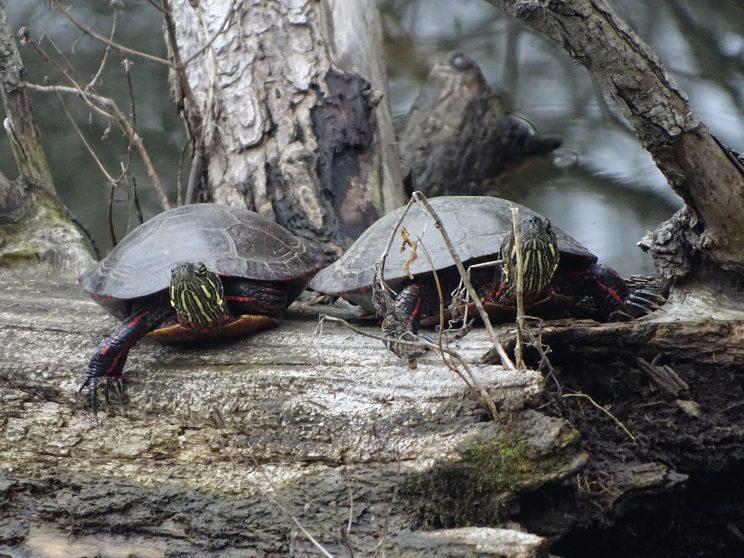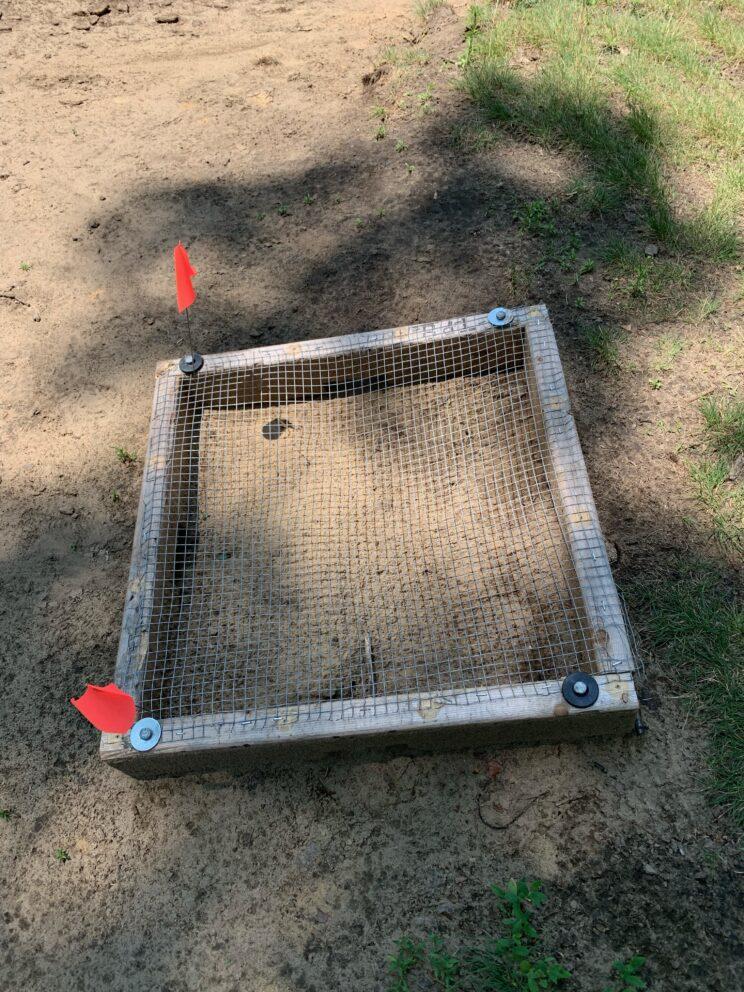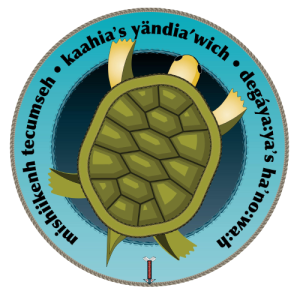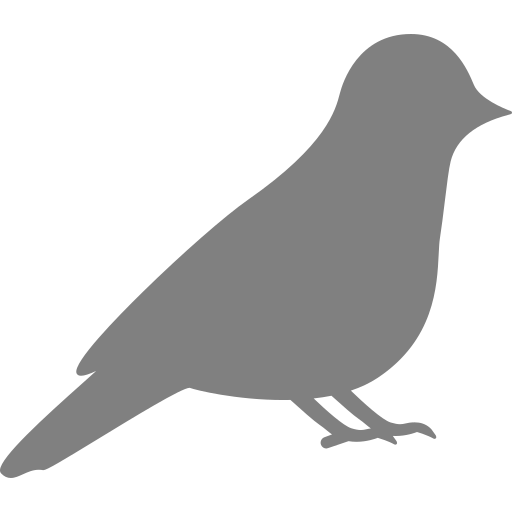High Park is home to two native, at-risk turtles—the common snapping turtle and the Midland painted turtle. A third, the invasive red-eared slider is native to Mexico and the southern US, usually a pet later released into the ponds.

Nesting
Although turtles may be on the move from April to October, it is in June when most females leave the safety of the water to find a sunny, well-drained nesting site with little or no vegetation. Here, often a few hundred metres or more from the water, they lay their eggs.
When a female finds a site, she very slowly uses her back legs to dig a hole, push the eggs out and then cover it over.
There is no parental care of the eggs after they are laid and the hatchlings set out on their own to find their way to water. The snapping turtle hatchlings emerge in September and October while the painted turtle hatchlings emerge in the spring after wintering over in the nest.
Multiple Threats
Only a very small percent (less than 1%) of the eggs ever make it into the population. Unfortunately turtle eggs are at risk from off-leash dogs as well as predators such as raccoons, skunks, coyotes and foxes. Hatchlings may later be threatened by coyotes, herons, egrets, hawks, owls, bullfrogs and large fish. Other general threats come from vehicles, toxic contaminants, habitat degradation, invasive plants, litter, climate change and injury from fishing.
Nest Protection
Turtle Protectors High Park is an Indigenous-led, volunteer conservation group whose initiatives include posting Turtle Crossing signs and placing protectors over the nests.

What to Do if You See a Turtle
- Keep a respectful distance and stay on the trail.
- If you have a dog, ensure it is kept well away from the turtle and nest.
- Call the Turtle Protectors’ hotline (647-491-4057).
- Refrain from releasing pet turtles into the wild.
It is illegal to disturb or interfere with a turtle nest in any way.
Hatchling Hill
One last word – Cherry Hill in the park has been dubbed Hatchling Hill in order to promote awareness of our precious turtles.
Learn more here:

















